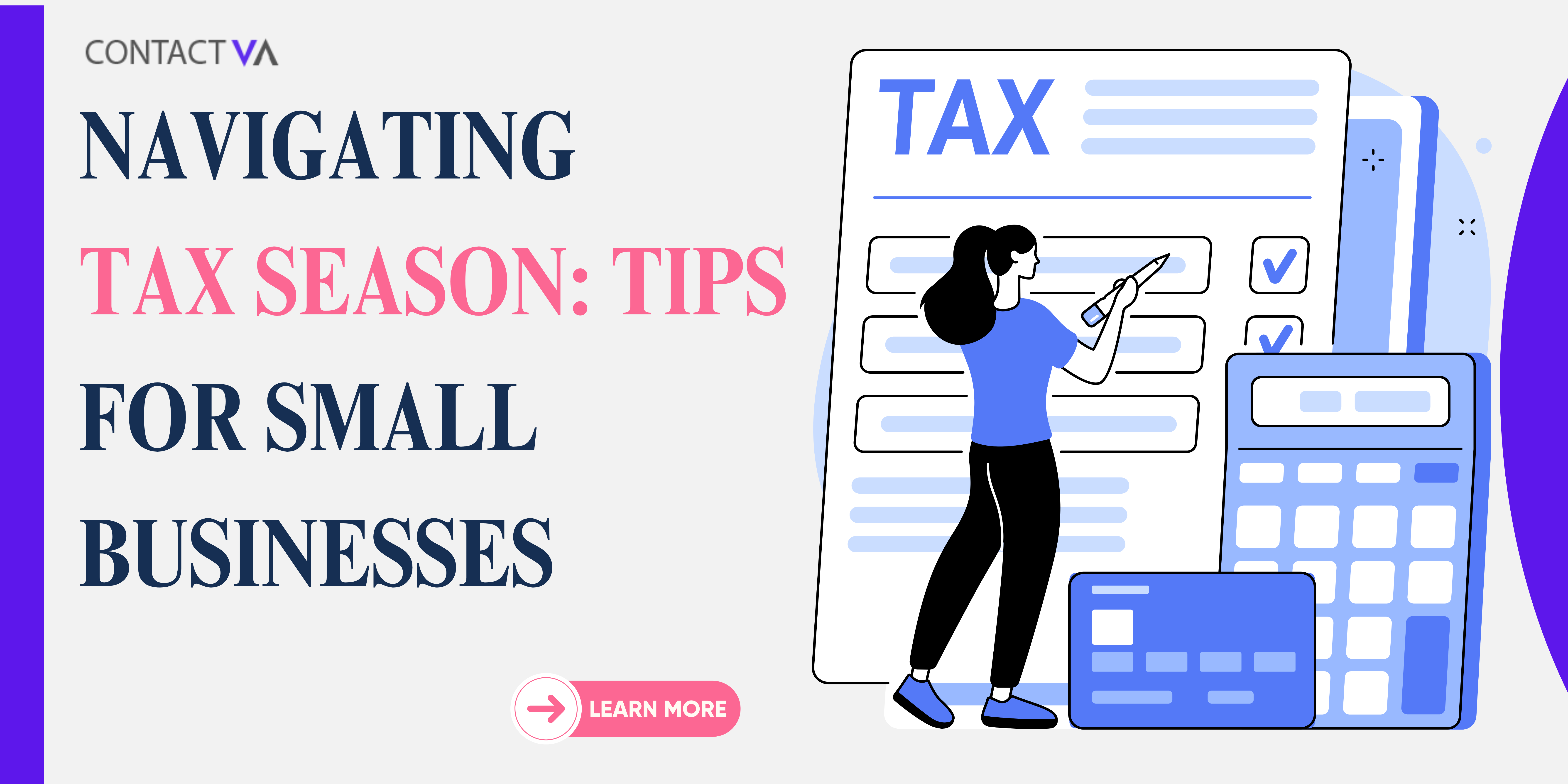As expense season draws near, small businesses should plan carefully to guarantee consistency with charge guidelines and expand allowances. Viable bookkeeping rehearses assume a vital part in this cycle, giving a strong groundwork to precise duty documenting and monetary administration. In this aide, we'll investigate fundamental tips for small businesses to explore charge season effectively with compelling bookkeeping.
Understanding Small Business Taxes
1. Know Your Tax Filing Deadlines
Remain informed about significant tax filing deadlines to keep away from punishments and interest charges. Dive more deeply into government and state tax deadlines, including any augmentations accessible for independent companies.
2. Maintain Accurate Financial Records
Carry out hearty bookkeeping practices to follow pay, costs, and derivations over time. Use bookkeeping programming or work with an expert bookkeeper to productively sort out your monetary records.
3. Maximize Tax Deductions
Recognize qualified tax deductions for small businesses, for example, operational expenses, workspace allowances, and retirement plan commitments. Keep point-by-point keeps and receipts to prove your derivations if there should arise an occurrence of a review.
4. Prepare a Balance Sheet
Make a balance sheet to give a depiction of your small business's monetary position, including resources, liabilities, and value. A completely ready balance sheet works with precise expense detailing and monetary investigation.
5. File Tax Extensions if Needed
If you call for extra investment to set up your government form, think about petitioning for a duty expansion. Structure 4868 permits independent ventures to demand a programmed augmentation of time to record their expense forms, giving an additional a half year to present the essential desk work.
6. Seek Professional Assistance
Talk with a small business CPA or expense counsel for master direction on tax preparation and arranging. A certified proficient can assist you with exploring complex Tax regulations, identifying potential deductions, and optimising your tax strategy.
7. Maintain a Mileage Log
Keep a mileage log to follow business-related travel costs, including mileage driven for client gatherings, conveyances, and other business purposes. Appropriate documentation of mileage can assist with amplifying your allowances and limit charge liabilities.
8. Utilize Online Resources
Exploit online expense devices and assets to improve the tax preparation process. Numerous IRS structures and distributions are accessible Internet, permitting small businesses to document burdens electronically and access important duty-related data.
9. Stay Informed About Tax Law Changes
Stay up to date with updates to burden regulations and guidelines that might influence small businesses. Buy into bulletins, go to courses, or talk with charge experts to remain informed about changes that could affect your duty to document necessities and commitments.
10. Organize Financial Documents
Keep a coordinated framework for putting away monetary records, including receipts, solicitations, bank proclamations, and tax documents. Sorting out your administrative work makes it more straightforward to set up your assessment form precisely and guarantees that you have the important documentation in the event of a review.
11. Review Previous Tax Returns
Exploring past assessment forms can assist with distinguishing regions for development and guarantee consistency in detailing. Search for expected blunders, missed derivations, or open doors for charge reserve funds that can be tended to in the momentum charge year.
12. Consider Tax Planning Strategies
Investigate small business tax that can assist with limiting your private venture's assessment risk and expand reserve funds. Systems like pay deferral, retirement commitments, and expense-effective ventures can upgrade your duty circumstance and work from your monetary standpoint.
13. Monitor Cash Flow
Keep a nearby eye on your small business's income to guarantee that you have adequate assets accessible to meet your duty commitments. Put away assets for charges in a different record to keep away from income issues and punishments for late instalments.
14. Review Quarterly Estimated Tax Payments
Assuming your small business is likely to quarterly assessed charge instalments, survey your instalment plan and guarantee that you are making ideal and precise instalments. Change your assessed charge instalments depending on the situation in light of changes in pay or costs over time.
15. Seek Professional Advice
If all else fails, look for proficient guidance from a certified bookkeeper, charge counsellor, or monetary organizer. An expert can give customized directions custom-made to your small business's special conditions and assist you with settling on informed conclusions about charge arranging and consistency.
By following these extra tips and keeping a proactive way to deal with charge arranging and planning, small businesses can explore charge season with certainty and streamline their monetary results.





_128760x60.png)
_128660x60.png)

_128460x60.png)
Write your comment
Cancel Reply